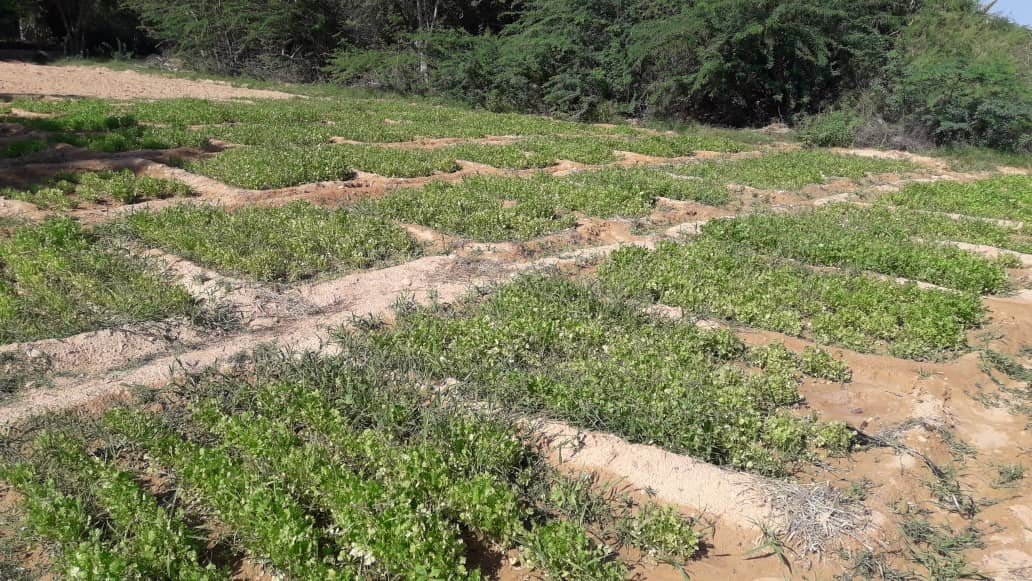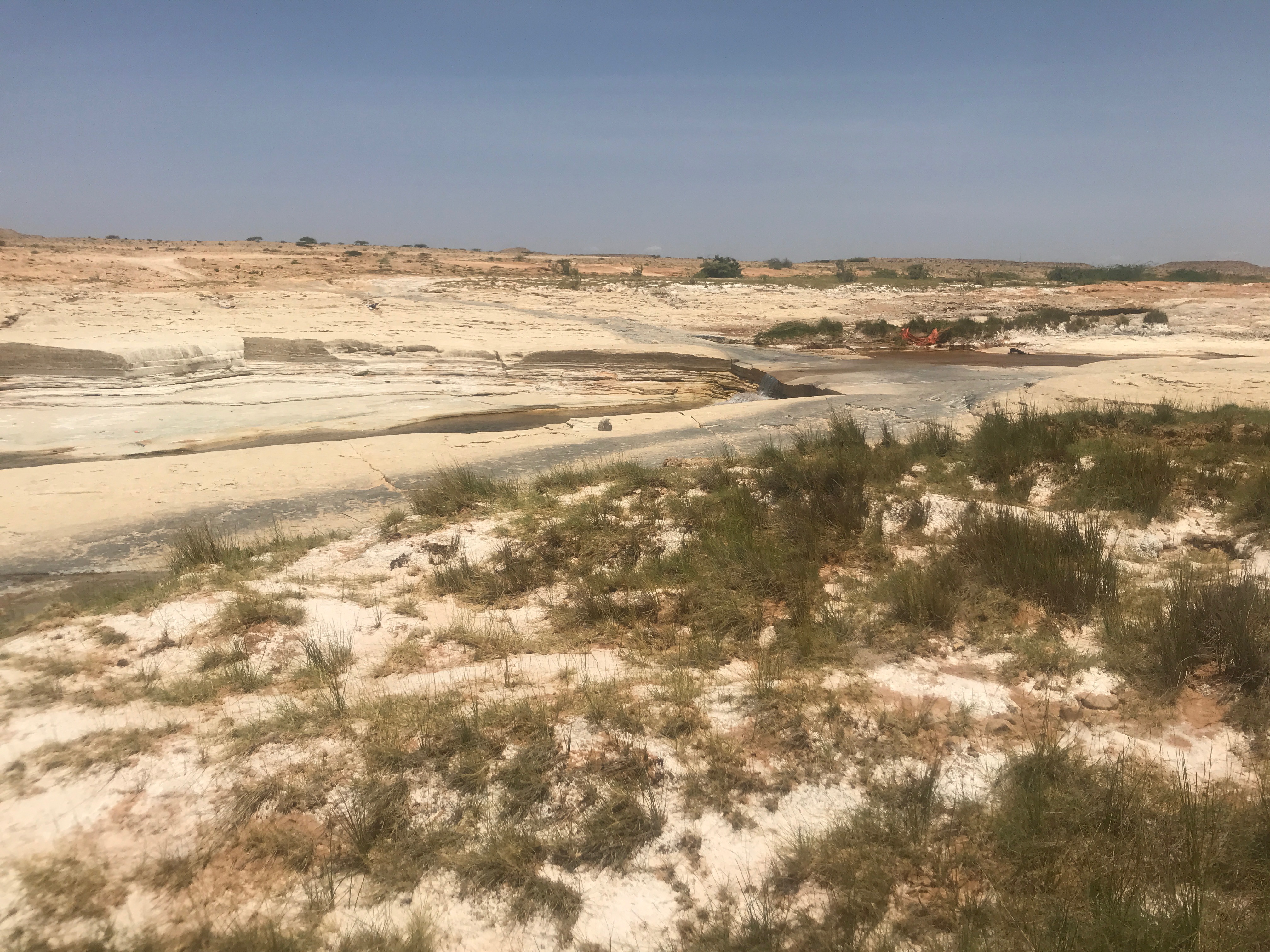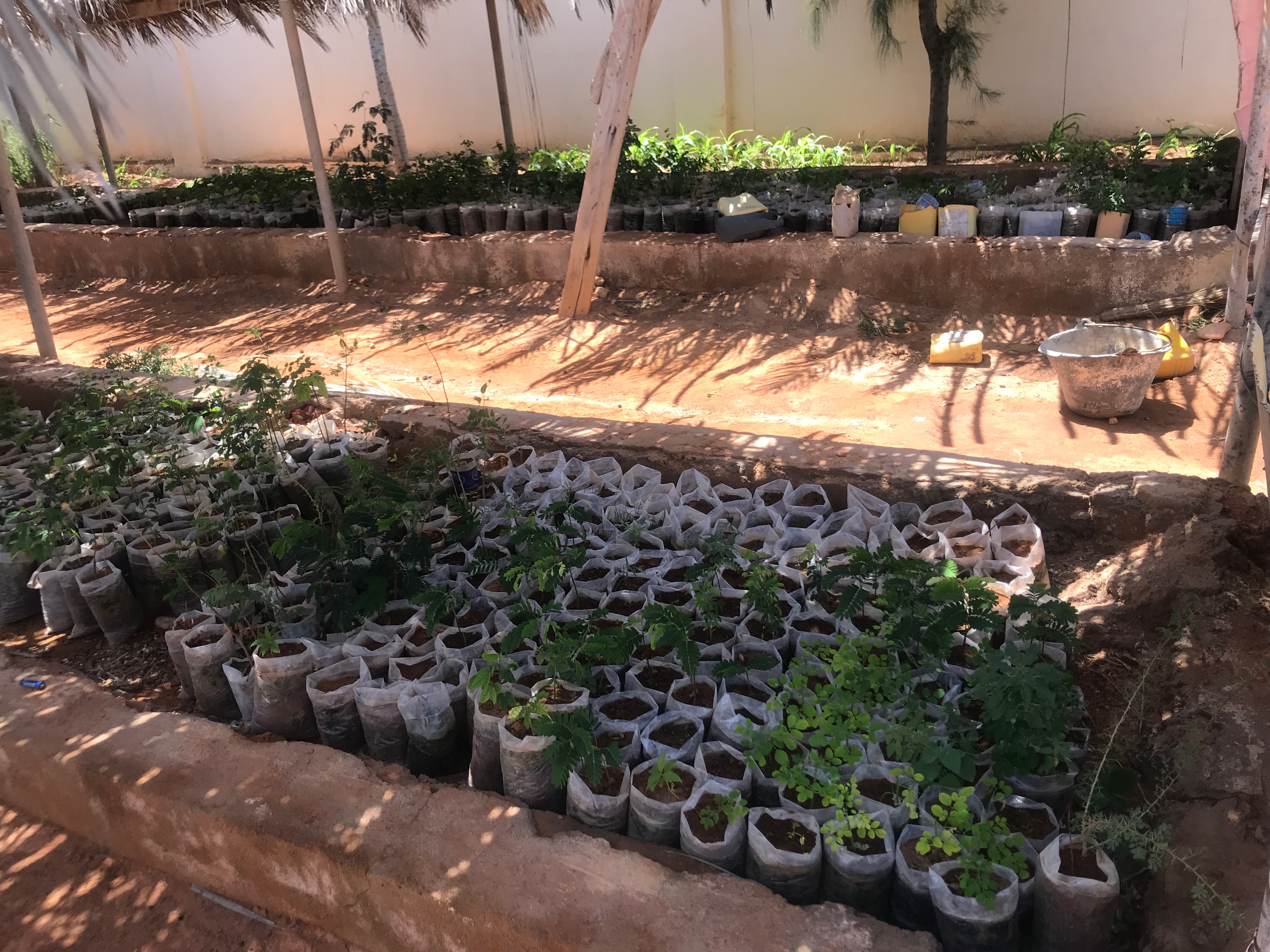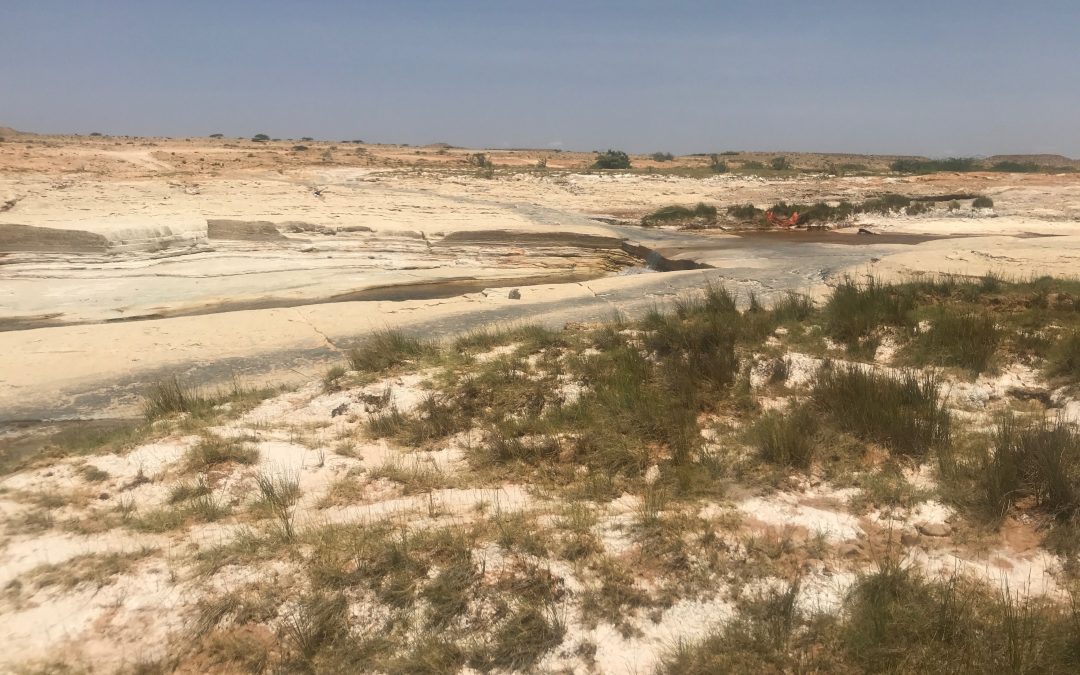
Vegetable plot in a community farm in Kubo, Bari. Photo: Ahmed Mohamed
By May Muthuri
The former conflict zone in Somalia is undergoing a renaissance through restoration of land that brings incomes, food security and hope.
What’s the first thought that comes to mind when you hear the word ‘Puntland’? I can imagine you are already picturing appalling conditions mired by conflict, extreme poverty and malnutrition. To others, Google would have to be a friend because the term might be foreign given that Puntland is largely unknown globally. From another perspective, why are we even having this conversation when there are major things to write, read or vent about? Well, don’t be quick to judge. Instead, allow me to shed some light: Puntland is a semi-arid region in the northeastern part of Somalia that is making impressive progress to restore its degraded landscapes and rebuild people’s lives and livelihoods.
‘Puntland has experienced great transformation and has so far generated and distributed a lot of tree seedlings’, pointed out Abdullahi Jama Ismail, regional coordinator for Somalia’s Ministry of Environment, Agriculture and Climate Change. ‘Most lands are getting rehabilitated and forests coming up courtesy of various interventions through projects such as Degaankaagu wa Noloshaada (Your Environment is Your Life), implemented in Puntland from 2013 to 2017. Other projects include Ending Desertification in Somalia and RESTORE’.
You see, the narrative is changing! Having experienced the perils of conflict and Nature’s unforgiving vengeance, Puntland’s citizens are keen to regain what they have lost and may still be losing. With these progressive changes, a project funded by the European Union, Regreening Africa, is accelerating the momentum, becoming a beacon of hope for progressive and sustainable development.

Degraded riparian land around river bed near Garowe, Puntland. Photo: Jonathan Muriuki
The European Union has taken the lead in supporting land restoration in Somalia through various investments such as Degaankaagu wa Noloshaada. This has laid the foundation of putting the right policies in place, building technical capacity in government agencies and establishing environmental diploma and degree courses in local universities.
Activities officially kicked off in April 2019 and will contribute to improving the momentum of recovery thanks to the work of other projects, running into millions of dollars, which have set the foundation.
‘The Ministry of Agriculture and Environment will work closely with World Agroforestry and partners under the Regreening Africa project to build the momentum for land restoration in Puntland and the rest of Somalia’, said Minister Ismail Dirie.
‘Regreening Africa offers a great opportunity for Puntland to gain from ICRAF’s excellent scientific support to governments and local communities implementing land restoration’, noted Susan Chomba, Regreening Africa’s programme manager. ‘The experience gained under the project will also be useful in scaling-up land restoration activities in other parts of Somalia’.
Abdirahim Gure of CARE Somalia, who is Regreening Africa’s manager in Puntland, couldn’t agree more with Susan’s statement.
‘Through direct scaling and leveraging initiatives at community, the project will transform 20 000 smallholder farmers and pastoralist households, and regreen 9000 hectares in Puntland’, he said at a recent planning meeting held in Garowe.
The focus of the planning meeting was to deliberate on possible ways to scale-up the project’s initiatives and build on what previous interventions had achieved. The participants emphasised the need of the involvement and commitment of the communities and all others involved in Regreening Africa if they were to realise the goals and sustain them beyond the project’s lifespan.

CARE Netherlands, CARE Somalia and ICRAF interract with community in Kubo, Bari. Phtoo: CARE Somalia
From the discussions between representatives of ICRAF, CARE Netherlands and CARE Somalia, Puntland Government Ministries and local NGOs, it was clear that presenting evidence on the gains from land restoration will influence prevailing policies and practice. This would be achieved through a stakeholder-engagement approach supported by World Agroforestry (ICRAF).
Regreening activities are being implemented in 27 sites at village and sub-village levels in the Sanaag and Bari regions of Puntland. The activities include sustainable land management, particularly, farmer-managed natural regeneration, grazing management, management of invasive plant species and agroforestry practices to support dryland farming.
A suite of practices that are contextually appropriate are being deployed in partnership with local communities to provide benefits from increased land productivity and strengthened tree-based value chains.
In just five months since activities began, Regreening Africa has already attracted positive attention. Hassan Saeed, former Minister of Aviation in Puntland, heard of the planning meeting and said to himself, ‘Why not join? What’s the worst that could happen, anyway… get turned away? One can surely live with that!’
Prodded about the source of his decision to participate, he responded, ‘We need to emphasise as much as possible the importance of caring for the environment. This is the source of livelihoods for Puntland communities as they directly depend on it and so do their livestock. Ecosystems provide the necessary goods and services that we all require. As a region, we do not have industries to provide alternative sources of income, therefore, fetching paltry sums from rangelands should stir interest in all, to stand up and protect the environment. The Regreening Africa project is quite timely as we will now gain deeper knowledge from experts in agroforestry!’

Tree nursery at Ministry of Environment, Agriculture and Climate Change offices in Garowe, Puntland. Photo: Jonathan Muriuki
‘Our experience with Regreening Africa in Puntland is important as we learn better on how to increase incomes as well as food security and resilience among pastoralists and agro-pastoral communities’, stated Jonathan Muriuki, ICRAF’s Kenya country representative and focal person for Somalia. ‘We are keen on supporting partners in sustainably managing the rangelands, improving forage for the animals, exploring suitable tree-based value chains and, therefore, diversifying sources of household nutrition and incomes from livestock, crops and trees and use these lessons in greater Somalia and other similar contexts’.
Managing tree diversity will be crucial, including improving access to quality tree seeds and seedlings for enrichment planting, seeding degraded pastureland with them and thereby ensuring restoration of indigenous species. ICRAF supports development of local tree nurseries by providing diverse genetic resources from its global genebank in Nairobi, Kenya.
The success of the project is highly dependent on strong grassroots institutions that will take charge of land management at the community level. Village development committees (VDCs), village savings and loans associations and other community institutions are being revitalized and trained to lead the restoration process. In Kubo, the VDC is already engaging with the district government and has been able to bring a stop to cutting trees in their area. A lot of environmental benefits can already be observed, with households gaining food security and additional income from tree products.
There is hope that one day the challenging conditions will be a story of the past, that dark memories will give rise to a future filled with hope as lives and landscapes in Puntland are transformed so that children will only hear stories about the suffering of the past and never have to experience the pain of their ancestors.
About Regreening Africa
Regreening Africa is an ambitious five-year project funded by the European Union that seeks to reverse land degradation among 500,000 households, and across 1 million hectares in eight countries in Sub-Saharan Africa. By incorporating trees into croplands, communal lands and pastoral areas, regreening efforts make it possible to reclaim Africa’s degraded landscapes.
This story was produced with the financial support of the European Union. Its contents are the sole responsibility of Regreening Africa and do not necessarily reflect the views of the European Union.

